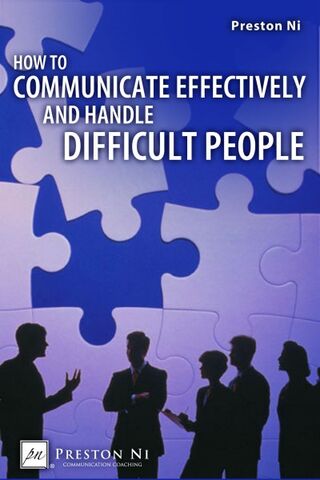Assertiveness
5 Keys to Handling Judgmental and Opinionated People
How to handle highly opinionated people.
Posted June 19, 2016 Reviewed by Kaja Perina

Most of us come across judgmental and opinionated people at some points in our lives. These individuals may presume that they “know better,” and be inclined to “correct” your words, perspective, behavior, and/or life choices*. How can you effectively handle those who insist on imposing their views? Below are five important keys, with references from my book (click on title): “How to Communicate Effectively and Handle Difficult People”. Not all of the tips below may apply to your particular situation. Simply use what works and leave the rest.
1. Set Boundaries Diplomatically
When someone insists on levying her or his opinion onto you, respond assertively and diplomatically with “I” and “It” statements. For example, if a person unreasonably says to you: “You need to think about the issue my way…” or “You’re better off doing this as I say…,” respond with any combination of the following:
“I prefer to look at the issue this way...”
“I’m happy with how I’m handling the matter.”
“It works for me to use this approach...”
“It’s important to me that I take care of this my own way.”
What these “I” and “It” statements have in common is that they are more difficult to outright disagree with. After all, you’re simply exercising your own choice as an adult. Should someone insist on grilling you, avoid getting defensive by engaging in arguments or justifications. Say, briefly and succinctly, that “it’s my choice” or “it’s my take.” Repeat the short “I” and “It” statements until the difficult individual gives up.
2. Say: “Thank You” to Terminate the Topic
An effective way to halt unsolicited advice is simply to say “thank you” in a firm tone of voice. It’s a polite and yet powerful way to indicate that you no longer wish to discuss the matter. You can use “thank you” as part of a diplomatic and/or assertive statement. For example:
“I appreciate your input. THANK YOU.”
“I’m okay with the ways I’m handling this, but THANK YOU.”
“This is how I look at the issue, but THANKS!”
“I’m happy with my decision, but THANKS!”
“I got your point, THANKS!”
When you set boundaries in this manner, those who are socially aware will get the message and likely back off. With someone who impolitely insists on pushing their views, consider using the next three tips.
3. Change the Topic
If a stubborn individual doesn’t take your diplomatic hints, and continues to pursue an unwelcome issue, take control of the situation by changing the topic. You can do this easily by posing questions of a completely different nature back to this person (pick a subject she or he will enjoy talking about). Or, if you’re in a group environment, ask your question to someone else. Cut off the stream of unsolicited advice, and redirect the focus.
4. Change the Topic with an Ally
This tip works well in group get-togethers. If you anticipate ahead of time that an opinionated individual will give you a hard time, make arrangements with a friend (an “ally”) in advance. When the judgmental person begins to pontificate, either have your ally interrupt and begin a new topic, or you can initiate a different conversation with the ally.
5. If All Else Fails, Walk Away and Keep a Healthy Distance
Not every difficult person is worth grappling with. Your time is important, and your peace of mind a priority. In the face of an extremely negatively entrenched individual, simply say you have to go, and diplomatically make your exit. If you’re at a group get-together, keep a healthy distance by spending most of your time communicating with other members in a separate space. Think twice before obligating yourself to interact with the judgmental individual.

For more tips on how to deal with difficult people, see my books (click on titles):
"How to Communicate Effectively and Handle Difficult People"
"How to Successfully Handle Passive-Aggressive People"
© 2016 by Preston C. Ni. All rights reserved worldwide. Copyright violation may subject the violator to legal prosecution.
*This article is intended for readers whose reasonable adult views, behavior and choices are being judged. In situations where clear harm is being committed, intervention may be needed.




